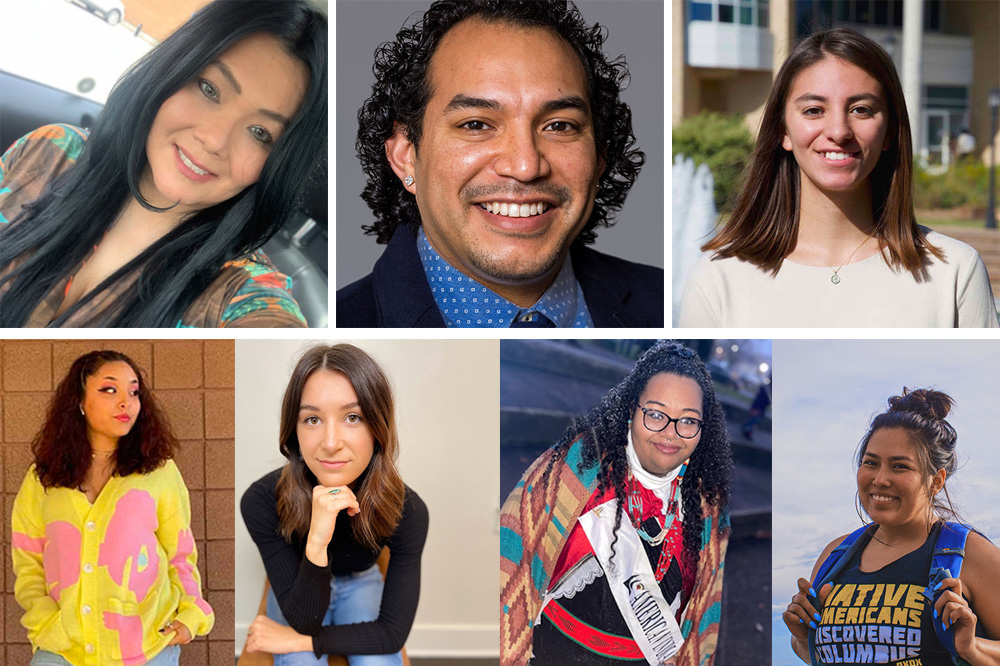
- Details
- By Neely Bardwell
Seven students have been selected by the Native American Journalists Association (NAJA) to participate in the Native American Journalism Fellowship (NAJF). Each of these students are currently enrolled in colleges and universities across the country.
This 2022 class of fellows will be able to participate in a virtual curriculum while also receiving three hours of college credit through their respective universities. There are five mentors that the students will work closely with throughout the duration of this fellowship. Each of these five mentors represent four different branches of journalism: broadcast, radio, print, and digital media.
Students will get to pitch stories to news outlets and also get the opportunity to participate in the National Native Media Conference where they will be able to meet and network with other Indigenous journalists.
The 2022 NAJF Class
Lyric Aquino (Tewa) - New York University
Grace Benally (Navajo) - Arizona State University
Valentin Contreras (Pala Band of Mission Indians and IIPAY Nation of Santa Ysabel)
California State University
Carrie Lynn Johnson (Chickasaw and Pawnee) - Austin College
McKayla Lee (Navajo) - University of Montana
Lindsay McCoy (Sault Ste Marie Tribe of Chippewa) - Michigan State University
Priscilla Wolf (Cree) - University of Regina
More Stories Like This
Bard College Center for Indigenous Studies (CfIS) Hosts Annual Symposium With Keynote Speaker Miranda Belarde-Lewis on March 9–10American Indian College Fund Announces Spring 2026 Faculty Fellow Cohort
Navajo Nation Signs $19 Million Diné Higher Education Grant Fund Act into Law
Dr. Shelly C. Lowe to Be Inaugurated as IAIA President March 26–27
Tlingit Language Courses Expand for Students to Learn With Families At-Home
Help us defend tribal sovereignty.
At Native News Online, our mission is rooted in telling the stories that strengthen sovereignty and uplift Indigenous voices — not just at year’s end, but every single day.
Because of your generosity last year, we were able to keep our reporters on the ground in tribal communities, at national gatherings and in the halls of Congress — covering the issues that matter most to Indian Country: sovereignty, culture, education, health and economic opportunity.
That support sustained us through a tough year in 2025. Now, as we look to the year ahead, we need your help right now to ensure warrior journalism remains strong — reporting that defends tribal sovereignty, amplifies Native truth, and holds power accountable.
 The stakes couldn't be higher. Your support keeps Native voices heard, Native stories told and Native sovereignty defended.
The stakes couldn't be higher. Your support keeps Native voices heard, Native stories told and Native sovereignty defended.
Stand with Warrior Journalism today.
Levi Rickert (Potawatomi), Editor & Publisher

